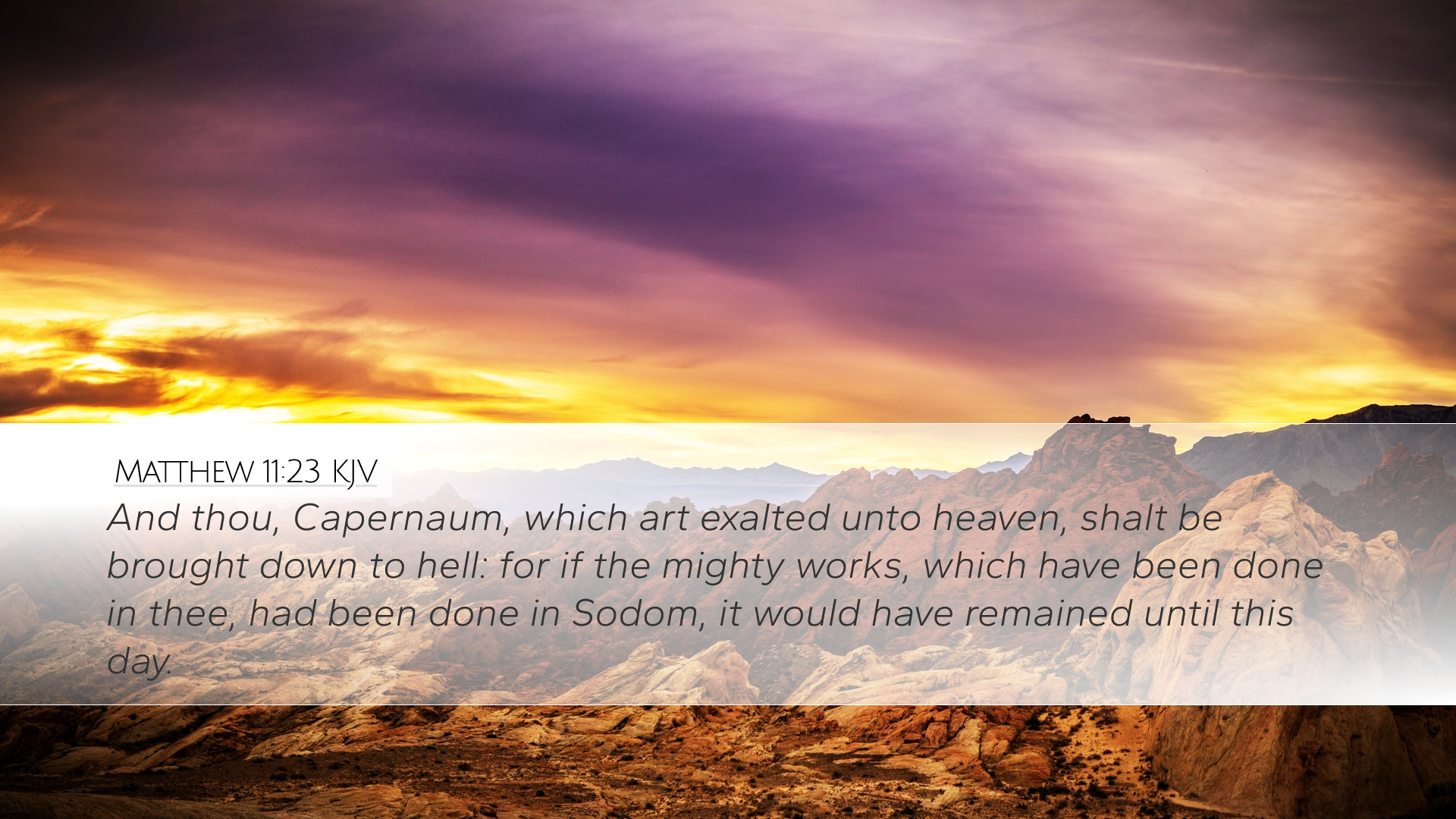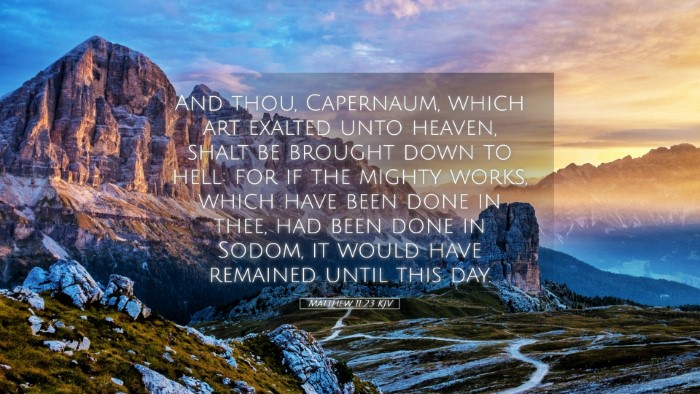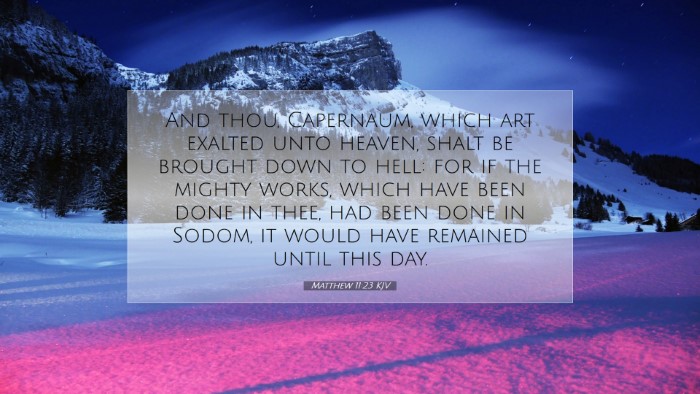Bible Commentary on Matthew 11:23
Verse: "And you, Capernaum, which are exalted unto heaven, shall be brought down to hell: for if the mighty works, which have been done in thee, had been done in Sodom, it would have remained until this day."
Context and Background
Matthew 11:23 is located within a section of scripture where Jesus is addressing the cities in which He performed most of His miracles. The response of these cities to His teachings and miraculous works is of crucial importance. Capernaum, as Jesus’ base of operations in Galilee, receives a specific and severe condemnation.
This commentary draws insights from the works of esteemed theologians such as Matthew Henry, Albert Barnes, and Adam Clarke to provide a deeper understanding of this verse.
Insights from Matthew Henry
Matthew Henry elaborates on the gravity of Capernaum's position. He notes that the city had experienced great privileges through the miracles of Christ: healing the sick, casting out demons, and delivering profound teachings. Yet, despite these divine manifestations, the citizens remained unrepentant. Henry emphasizes that a city so favored and enlightened that rejects the Truth faces severe repercussions.
- Spiritual Privilege: The greater one's spiritual privilege, the heavier the judgment upon rejection of Christ. Capernaum enjoyed a front-row seat to Jesus’ ministry.
- Comparison to Sodom: Capernaum's unresponsiveness is confronted with the historical sin of Sodom, suggesting that Sodom, despite its notorious immorality, would have repented had it witnessed the same miracles.
- Consequences of Despising Grace: Henry warns that to despise the grace of God leads to spiritual ruin, summarizing that their future was bleak as they rejected what they knew to be true.
Insights from Albert Barnes
Albert Barnes provides a detailed exposition of the language and meaning within Matthew 11:23. He suggests that Christ’s condemnation of Capernaum indicates a profound truth about accountability. Capernaum, "exalted unto heaven," signifies a place of high privilege, yet a place destined for downfall due to its failure to respond to divine truth.
- Exaltation and Humiliation: Capernaum’s error lay not merely in disbelief but in a failure to cherish the divine presence embodied by Christ. Barnes highlights that their “exaltation” was matched with an imminent judgment.
- Mighty Works: The "mighty works" serve a dual purpose—proof of Christ’s divinity and a measure of responsibility for those who witnessed them.
- Judgment and Mercy: Barnes emphasizes the mercy that was extended to Sodom, which was destroyed for its sins, whereas Capernaum had a chance to see the Savior and yet failed to repent.
Insights from Adam Clarke
Adam Clarke explores the textual and theological implications of this verse. He argues that the reference to Capernaum is a reflection not only of geographical judgment but of spiritual decline. Clarke suggests that Capernaum represents those who possess knowledge of God yet do not act accordingly.
- Reflection of Spiritual Condition: Clarke maintains that this judgment reflects a broader spiritual condition. Those raised in the light of the Gospel yet walk in darkness will face the harshest consequences.
- Interpretation of "Hell": Clarke discusses the meaning of “hell” in this context, understanding it as a metaphor for extreme degradation and ultimate spiritual desolation.
- Call to Repentance: Clarke captures the essence of Christ’s warning as an urgent call to repentance, urging listeners to heed the disclosures of grace lest they suffer the consequences of their disbelief.
Theological Reflections
Matthew 11:23 serves as a sobering reminder of the responsibilities that accompany privilege. The theological implications emphasize the high cost of spiritual neglect and the peril that accompanies failing to embrace God’s grace. The fate of Capernaum illustrates a critical principle—those who have been exposed to the greatest truths are held to a higher standard.
This verse also evokes reflection on contemporary society; many today share similar privileges of access to the Gospel but may respond with indifference. The challenge for pastors, theologians, and scholars is to communicate the urgency of repentance and the importance of responding to divine revelation with faith and action.
Conclusion
In conclusion, the insights provided by Matthew Henry, Albert Barnes, and Adam Clarke on Matthew 11:23 deepen our understanding of accountability and the sobering consequences of rejecting divine truth. For pastors and theologians, this verse serves as both a warning and a call to actively engage with the Gospel, nurturing a culture of repentance and holiness that reflects the nature of Christ’s work among us.


